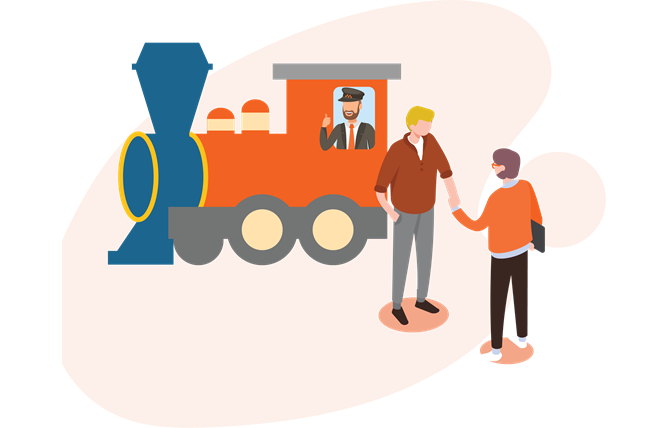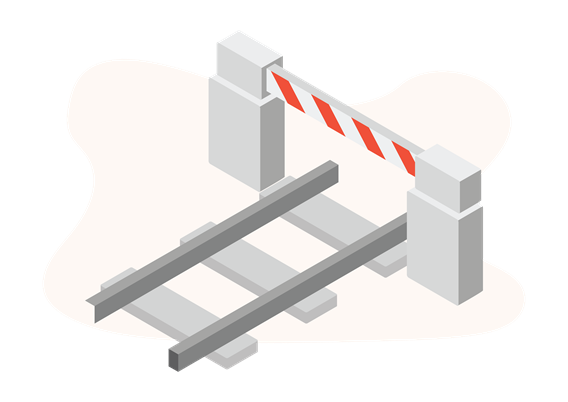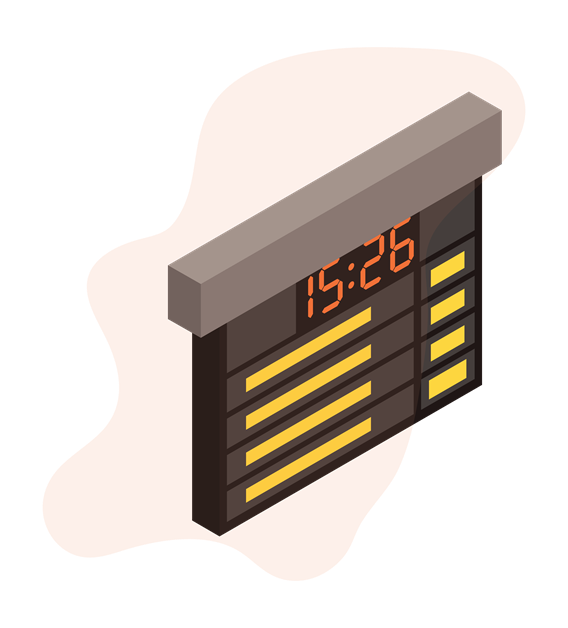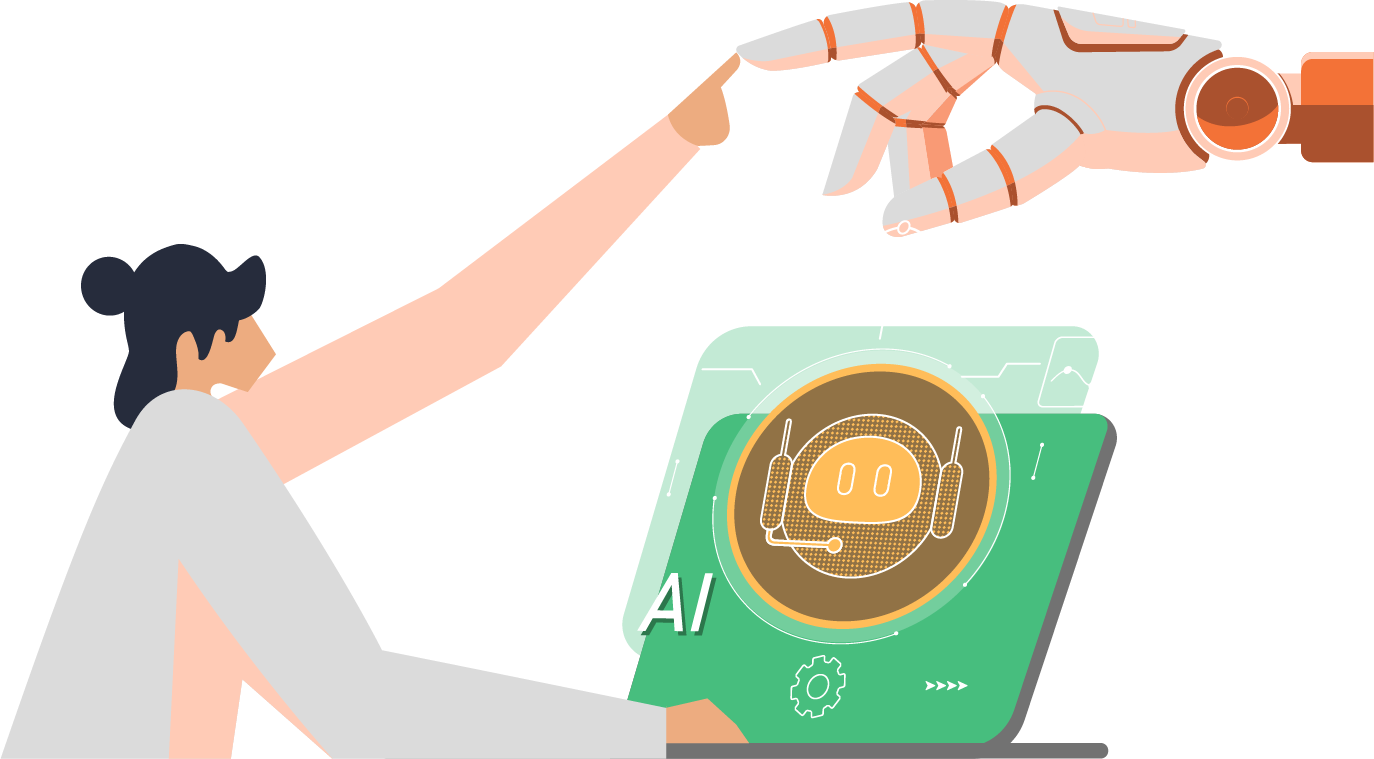TRAIN STORY

Welcome to the Insentra Train Story
The analogy we run through the business is simple in concept – Insentra is like a steam train. A steam train with rocket propulsion units on the back! So, it’s flying along the tracks, and I’m the guy who’s at the front driving. As the guy who drives the train, what I do is decide which way the train’s going to go – which track we go down, how fast we go, do I put the train on a hill i.e. do we get busy or do I pace the train and allow it to coast for a little while. Sometimes it’s like “you know what, let’s take our foot off the accelerator for a bit and slow it down and just enjoy the ride down the hill”. They’re the sorts of
decisions I make as the guy who’s leading the train in terms of where we are going.
Of course, I don’t make all these decisions myself – I rely on the train’s crew to provide input and direction, but ultimately, someone needs to make a decision. The thing is, no one wants to get on a train without knowing the destination right? More so, nobody wants to work on a train which is not a great, fun place to work.

Who Is On the Train?
We have passengers who get on the train, they’re our clients. We have workers on the train – the crew here at Insentra. When we get clients on the train, we want to create a certain experience. To be effective, we also need to make sure everyone working on the train has the right experience. If the crew on the train are doing what they love in the company of people who love what they do, they will exude this to our passengers.
Our Carriages
Remember I said it is a steam train? To make a steam train run you need to shovel coal into the engines and on our train, we’ve got multiple carriages each with their own engines. Our carriages are Advisory, Modern Workplace, Secure Workplace, Cloud, Generative AI, Adoption and Change Management, Sales and Marketing and Managed Services – a different carriage for each of our different areas with Managed Services having a presence in almost every carriage.

Open Doors
Even though we have different carriages, there is one very important thing. Have you ever been to the UK and taken a ride on one of the tubes where you can stand on one end of the train and see all the way to the other? You can watch it snake because all the doors are open. That’s the kind of train we operate – a train where all the doors are open. i.e. there’s nothing to stop anybody from walking between and seeing what happens in the different carriages.
And there’s nothing to stop people coming up to the front of the train and saying hi to me as the driver because you get bored and lonely when you’re the driver. You’re there on your own trying to work everything out, so it’s nice when people come and say hi. It’s nice when people come and talk to you about things happening on the
train because when you’re sitting in front, you’re not always certain of what’s going on behind.
It’s my job to know what’s happening on the train and to keep my finger on the pulse of what’s happening because if the workers can’t shovel coal appropriately and don’t feel they’re enjoying the coal that they’re shovelling, the train won’t run at peak performance. The analogy is such that if our crew enjoy what they’re doing, how they’re doing it, and loving who they get to do it with, each one of our carriages is going to perform efficiently and at peak performance. And I see it as the responsibility myself and of the executive and leadership teams to ensure the team is happy and able to perform at their peak.

One Team One Dream
We know what happens in businesses is that not every part is going to be firing at the same time – not every coal furnace is going to be burning as hot as the next one. Now that’s the beauty of being on a train because it’s all connected. So, if one carriage is not firing properly, it’ll get pulled, or if it’s at the front it will get pushed. So… the whole train works together as one, and it goes in the same direction. It’s always on the same path. There’s no carriage off somewhere else because, if it is, it’s been derailed and can’t function as a part of the whole. The entire train has to work together.
Now, if I need to get up from the front of the train and come back to shovel coal, well then, I’ll come back and shovel coal! For example, somebody sent me a SOW to review. Can I do it? Sure! Now, some people might sit there and say “Hang on he’s the train driver, he doesn’t need to look at that sort of stuff. Why is he looking at that?” I look at that because that’s what the train needs, and we all do what needs to be done to make the train amazing. No one is too good or senior to get their hands dirty.
So… if I can get out of the front of the train and shovel coal with other people, so too can everybody on the train help everybody else. That’s one of our core values. One Team One Dream. If everybody is working together as a team, someone might need to help shovel coal in another carriage to give that carriage a hand. Together we are many.
Not My Job
There are three words that don’t get uttered on our train – “not my job”. If somebody utters, the words ‘not my job’ they will be the truest and last three words they speak on our train. Ok? ‘Not my job’ intimates we’re not on the same train. I’m in my carriage, I’m doing my thing, you can all get knotted and I’m gonna keep doing my thing. Well that refutes One Team One Dream and that refutes the train all working together as one.

Seek to Understand Before Being Understood
Here is another really interesting thing about the way the train works. There are myself and the other conductors on the train – the executive and leadership teams – and we’re not about beating the crap out of people. We’re about seeking to understand before we make ourselves understood.
So, if someone is saying or doing something we don’t like, let’s understand why they’re saying it. Where does it come from? Can we help them through that? Can we make their journey easier?
The message here is that on the train you should have no fear of raising issues. No fear that by raising something, you will have someone else having the shit kicked out of them – that would be defeatist. We don’t operate that way. We seek to assist people in becoming the best versions of themselves.

Catch Someone Doing Something Right
On our train, we aim to “catch someone doing something right”. Now we know not everybody is going to do everything right all the time and we make mistakes. We also understand people are potentially going to forget some of the ways in which the train operates. At that point, it’s a flag to us to indicate we may need to re-educate, work on an attitude readjustment or remind them of what needs to happen. I am not perfect so I can’t possibly expect our crew to perfect either. Constant improvement and reinforcement is the key.
Celebrate
When we catch someone doing something right, we shout it out – another one of our core values – Celebration. Celebrate success and celebrate the wins. Call people out when they do good things! All too often in organisations, people are looking for others to do something wrong so they can leverage the error to make themselves look better as a result. Either that or they play games to get ahead. Those behaviours are not tolerated on our train.
On our train, when people do something right, we want you to absolutely shout it out and endorse it. When they don’t do things the right way, then it’s about understanding why they didn’t do it, helping them to understand what the right way is to do it. Ultimately, we like to make sure that everybody working becomes a better version of themselves and we understand that people are not perfect.

The Right Fit
The reality is nobody likes working with somebody who creates themselves into a special space because they believe ‘I’m different, I’m different from the rest of you’. You know what? The first line of our vision statement is “We dare to be different”. We embrace different!
We are all different. As individuals, by definition we’re different. All the individuals together and all the different personality types create an amazing melting pot of different people, with different skills and different ideas and together they make the train better. Yet issues between people will happen. It’s normal.
At no point should you feel you are doing wrong by escalating and raising an issue or raising a concern or saying ‘Hey! I’ve seen this I think you maybe want to have a chat’. The manager is NOT going to go to the person and beat the shit out of them. What they are going to do is to seek to understand. Where did this come from, what made them say what they did, why aren’t they comfortable doing that, etc. so that we can help them get better. Make sense? We want to make people better and truly believe everyone always comes from a good place. If you are not the sort of person who comes from a good place with your intentions, then guess what? You are not the right fit.
If that person becomes belligerent about the issue, if that person says “I don’t give a shit blah blah” then guess what? I’m opening the carriage door, and I’m chucking them out of the train. I’m not even stopping at a platform. There are no two ways. We are all about becoming better versions of ourselves on this train – continual improvement.
People get the opportunity to explain themselves, and if they don’t want to modify the behaviours to make the train work well, they’re not welcome here. This happened recently! There was an individual in our team that came and was absolutely not the right cultural fit for the train, who absolutely had the attitude of not my job, who absolutely had the attitude of fuck you to the world. None of this was
picked up in the interview process. Regardless, very promptly, they were thrown off the train. It only takes one rotten egg to evacuate a carriage of its workers and passengers, and we can’t afford for that outcome.
Our intention is to have people work on the train who fit. Have people work on the train who are passionate who are committed, who are dedicated, who know and buy into where the train is going and enjoy what they do. Ultimately, if you have belief in what’s happening in an organisation, if you think ‘wow this organisation is going places, it’s changing the world, it’s making a difference’, then it’s exciting to be a part of. There are, however, some individuals who don’t fit and that’s why I tell this story so candidly because our train may not be for you. That is your decision.
If you want to join our business and join our train, these are the rules of the way the train operates and if you don’t want to be a part of that, then hey I’m ok with that. I’m totally OK but let me know now so we can then not waste each other’s time, right? So ideally what we try and do (and generally we’ve been pretty good at it) is picking the right people to come in and fill the different seats; to take on the different roles of how to shovel coal, etc. in our train. I meet with all people who work on our train and what I am looking for is the fit. Are we the right place for one another, not just are you the right person for our crew. We need to be right for you too.
All too often companies are not transparent about how things operate day to day and their new starters spend a lot of time feeling the company out. I don’t want you to have to waste time doing that on our train. I want you to be very clear before you join and to be able to re-read this story as a constant reminder after you join so you don’t have to work out “how to work” on our train. Instead, you can come in, know the expectations, the approach, the type of train we operate and can shovel coal straight away!

Working With Our Model
So, the thing about shovelling coal is it’s a hot dirty job. Right? We’re in IT and what we do can be very difficult. Particularly in our train. Our train has multiple stakeholders so sometimes we have different types of passengers on our train, and they are often related to each other – we’ve got a channel partner, and we’ve got their client on our train at the same time. These two people are related to each other and we all know what it’s like with families. We know families get protective, so we’ve got to work out how do we keep both of those types of passengers (our partner and their client) happy on our train? How do we keep them excited? How do we amaze them? How do we make them come onto the train and go WOW what an amazing train? And at the end of their journey, how do we make them raving fans? How do we wow them to a point where they want to tell all of their friends about the amazing journey they had with Insentra.
We do this with Integrity. We remember our train’s lifetime is only as good as the number of passengers we have on board and their volition to take multiple trips with us. Our passengers are the very lifeblood of our continued existence and we remember it is our partners who trust us to give their clients a phenomenal experience.
Loving the Journey
That’s a very important message – how do we ensure that everybody who joins our train as passengers and crew love their journeys? How do we have them saying “wow what an amazing ride! What an amazing experience. The people who work on that train are incredible. They’re so united, they’re so on the same page, and they did everything they could to make us happy. Yeah you know what, we hit a couple of bumps on the line, but we told them the bump, and they came and fixed the issue promptly. Not only that, they did everything they could to make up for the bump”. So, we’re consistently trying to amaze, consistently trying to give our passengers and our crew the best experience when they join our train.


Managing Expectations
We are all responsible for ensuring the train runs on time for our passengers who expect to come on and travel to a destination at a certain point in time. Our role is to help the train get those passengers where they need to go at the right time because nobody likes a late train – everybody has trouble with a late train. But you know what? It can be OK for the train to be late occasionally so long as you know it is going to happen.
If you were notified two days ago the train you’re planning to take in two days is likely to be running late then you’re more likely to be ok with that because your expectations are managed. So, I expect the people who work on the train to manage the expectations of our passengers and to manage the expectations of the other people working on the train. Reality is the train won’t always run on time however, when it doesn’t, it’s how we deal with that that matters. People know shit happens, particularly in a services business. Not every engagement goes to plan or to schedule. It is how this is dealt with which matters most. Clarity, honesty, transparency, early warnings and a willingness to deliver an exceptional experience all contribute when things don’t go to plan.
Zero Politics
What happens when we get to the point of having one furnace and a bunch of people shovelling coal at the same time? Without a doubt, someone’s going to hit someone with a shovel, or someone’s going to drop a hot ember on somebody else’s toes. Not all crew will get along all the time – think about it… spend enough time with someone and you are likely to have something take place which annoys you or them – it is human nature. Basically, shit’s gonna happen. The question becomes how do we deal with that shit when it happens? How do we acknowledge and say ‘you know what? It’s ok that we had a bit of a tiff, it’s ok that I had a problem with a guy that I was working with, etc’? The key again is how we deal with it! Don’t go and bitch or complain to someone else about the issue. Deal with it head-on. Have the uncomfortable conversation and do it in a responsible adult manner. This speaks to another policy on the train – no politics on this train! There is no tolerance. Politicking is not accepted.
If I hear about politics, then I’ll tell you exactly how we deal with it. Let’s say you have an issue with someone or something they have done. It’s up to you at that point to raise the issue DIRECTLY WITH the person. If you can’t resolve it with them, then bring in a conductor – a manager. If it cannot be resolved with their assistance, bring in a Director. If a Director can’t resolve it with you and that person, bring
in me. Now… here’s what you can expect. I am going to try to help resolve the concern as best as I can. If we cannot come to a resolution where everyone is OK then at that point I’m simply going to say ‘hey if you can’t resolve your differences, tell me which one of you or both of you are about to leave the train.’ Because, if you can’t work with someone else on the train, it stands to reason you’re going to meet a client one day you can’t work with, and if you can’t work out how to work with these people that’s going to be a real problem for our train. Make sense? Behave like an adult and sort out your issues together – there is always a solution at hand, particularly when you know your crew members are all good people – if they weren’t then they wouldn’t be working on our train.
If you throw somebody under the wheels of the train or throw them onto the tracks to try and crucify them – that won’t work out well for you here on our train. You’ll be the one who will be gone. And part of that is to do with is what we were talking about earlier – catching people doing something right, celebrating those wins, etc. and helping people become better versions of themselves and not tolerating politicking.
No Tall Poppy Syndrome
We also don’t tolerate the idea of making someone look bad to make you look good. That in Australia is known as tall poppy syndrome. You know what? If you see someone better than you, then strive to be as good as them! Be great on our train. Be as good as you can be and know that everybody around you wants you to be as good as you can be and wants themselves to be as good as they can be and, if everybody ‘s helping everybody is helping everybody else to become the best versions of themselves, our entire train is working to the same outcome. Constantly aspire to greatness. Know and appreciate you can always learn and do more. As soon as you think you are the smartest person in the room you have just proven you’re not! Aim to have everyone be better, including yourself. Remember… One Team One Dream. Together we are many.

Efficiency
We’re all trying to be better. Don’t sit back and watch – help the train and all of its crew to be better. Get in the front seat and say things like… ‘Hey, you know I think there’s a better way to shovel coal. I think we can be more efficient if we do XYZ’. That’s all about our Efficiency value. How do we make the train as efficient as possible? There’s only so many coal shovelers you can put around one fire. Sometimes we’ve got to make a bigger fire, so there’s more room for people, yet sometimes we can do things more efficiently and guess what? You are the one who will see those things. You can make a difference. You can change the world on our train. You are empowered and expected
to make us all better. If everyone is helping everyone be better you can see the outcome. We WILL be better, and we can and will ALWAYS improve.
Alright. So, we are working through the values on the train. You have heard now about One Team One Dream, you’ve heard about Celebration, and you’ve heard about Efficiency. There’s another big value on the train – Accountability – this is where you own your own actions.

Accountability
The train is full of adults. The train is not an adult day care centre. We do not treat people who work on it like children; we treat them like adults. So, what this means is we expect you to behave like an adult and doing so means we expect you to take responsibility, to take ownership, to get things done as and when you say you will and to ensure you and our passengers get the outcomes they came for.
For example, you as an adult have your own apartment, and when you get off the train at night and go to your apartment you make sure you’ve got food there. If you have a family you make sure there’s enough food for your children, and you make sure everything’s done and you make sure your house is clean etc, etc. You do that because you’re accountable for that, you’re responsible for that – therefore why shouldn’t that behaviour appear on the train. This is your little part of the world, this the piece you’re responsible for, know what you’re accountable for and deliver.
Output Not Input - Be an Adult
Treating people like adults also means we don’t mind where you work. If that means working at home sometimes, then we’re ok with that. We measure output, not input. That said, don’t take the piss. You’re an adult which means you have accountability and responsibility. Yes, you will be joining a train with a flexible working environment where you are measured on output and not input however, that doesn’t mean you can leave and go home when you want or assume you can just decide one morning you’re going to work at home and not tell anyone about it, or that you can work from home all the time. Because you know what? Those behaviours are non-team behaviours and refute our One Team One Dream value.
So, communicate with your manager. Have the discussion saying, “hey I’d like to work from home tomorrow”. Give notice, be a team player. That said, we do know that sometimes shit happens and you wake up with a sick child or some other event like a burst water pipe which may need you to work at home, and you couldn’t anticipate the occurrence.
Of course, that is no issue – just make sure you indeed are working at home.
We also know you have personal things that need to get done – grocery shopping, doctor appointments, etc. If you’re taking that time out, then we expect you to ensure your passengers don’t miss you while you are gone and, critically, that you get done what you need to get done. i.e. you know what work you need to do and when it needs to be done by. It is up to you to manage your time to get that done and up to you to come and raise your hand if you don’t think you can do it – and to raise your hand with as much forewarning as possible. Unless in the case of an unforeseen circumstance, don’t come and tell us you can’t deliver something on the day or even the day before it is due to be delivered – this would just indicate you are not organised, not being truly accountable and, critically, not caring about the implications of your tardiness. Remember, don’t take the piss.
Own Your Own Career
To that end, you own your own career on the train. This is not a train that’s going to sit there and say “Oh you know what, Mary? In two years, I think you should be doing this, and on that basis, we’re going to put you through these training courses”. Our train does not work that way. Our train basically says, ‘Mary there so many carriages here, there are so many places you can go on this train – you tell me where you want to go, you tell me which carriage you want to work in and by the way if there’s not a carriage that suits you, then tell me that too” (that’s ok, and we’ll talk about that in a minute).
The idea of ‘you own your own career’ means YOU work with your manager. YOU drive the outcome you want. Don’t expect that the business is going to give it to you on a silver platter.
We’re not the company to do formal performance development plans and all that shit because usually what happens is they end up getting burnt in the furnace anyway because nobody ever looks at them again once they’re written. You will receive feedback from your manager and your peers. Listen to it, learn from it. There is no point us waiting for a performance review to tell you what you are doing well and where you need to improve. We would rather tell you as it becomes apparent. Plans get written, and then people sit there and go “oh it didn’t happen, it didn’t happen… my plan didn’t come to fruition”. Well… why not? What did YOU do to make it happen? What did YOU do to own your career and your objectives?
If you don’t know how you are performing, go find out! Talk to your manager in your regular one on one meetings. Seek to find out the information. Our expectation is your manager will constantly be working with you on areas of improvement and even more consistently telling you what you are doing well. We want you to succeed and we don’t want to let bad habits form. The sooner we tell you the feedback, the sooner you can implement necessary change or be thrilled at how well you are doing. Feedback is a gift! We don’t always like the gifts we are given however if we know the person providing the feedback is doing it from a place of love and a place of good intent then it should be seen indeed as a gift.
There is always a path. Again, all the train doors are open all the way up to the front of the train where I am sitting so if you’re not getting what you want then I want to know about it. As the driver, I don’t want you sitting there saying “oh but the driver has so much to do or I can’t interrupt the driver or why would I bother him with this small issue?” Because you know what? If it’s a small issue for you, it is still an issue. If you can’t get it resolved, then you’re not going to be happy on the train. If you’re not happy on the train, then what are we going to do. Worse still, how can we do anything if we don’t know what you are unhappy about? So how can you tell us?
Pebble In the Shoe
Remember we spoke about the times when you may have a hot ember dropped on your foot – the times when someone has done something to upset you? Well, sometimes you can let it fall off where it no longer bothers you and at other times part of that ember is going to break off and get into your shoe. That’s what we call the pebble in the shoe. So what do you do when you get a pebble in your shoe?
Now you have a choice. You’ve got a pebble, and you say ‘oh, it’s a bit uncomfortable’. You might say ‘oh I’ll take my boot off and I’ll shake it out’, put your boot back on and keep going. Or you may go ‘ah, this pebble is not small and I can’t seem to shake it out’. If that’s the case, what you end up doing is walking up and down the train with your pebble. You’re ok for a little while walking up and down with your pebble, but over time that pebble will turn into a blister. Worse still, after more time it will get infected and then it will be even harder for us to heal on the train. We don’t have a hospital carriage.
If however, you raise your concern with the person directly, they may be able to resolve what they did to upset you or, when not related to a person specifically, raise it with your manager. This provides someone the opportunity to help you shake out the pebble or perhaps give you a cushioning pad to make it better so the issue does not turn into a blister and we all move on. It is so much easier to deal with an issue as and when it happens than it is to let it fester. What happens if you don’t deal with it and indeed you do get a blister? Well, we have a way to help on that side too!
If you’re walking around with a blister, your fellow crew will see you limping and normally what happens when people see you limping they say ‘ooh she’s limping, I’m just going to step away from that and give that person a wide berth’, but at the same time they’re often also thinking ‘oh that person is limping. What’s going on for them?’ But they don’t ask because they don’t feel comfortable. Well… not on our train.
How Are You?
So, what we do on the train is we have a very simple approach of asking two questions – and we don’t wait until people have pebbles. We ask them in every single meeting. In fact, we encourage the questions are asked as often as possible.
Simple questions…How are you 1-10 personally? How are you 1-10 at work? Why do we do that? We don’t do that because we want to pry into personal lives. We don’t expect you to say, ‘I’m a three out of ten personally’ and then have to share why you are a three.
You don’t have to share why your personal score is what it is however, by letting your peers know your scores those working around you know you are a three out of ten personally and dealing with some things outside of the train. They can give you moral support and be more understanding of the mood you may be in and can try to provide you help as you may need. Because you know what? Shit happens in our personal lives all the time – we get bad news, we get ill, we’ve got family that’s ill, we woke up on the wrong side of the bed, we tripped over on the way to work. As much as we say don’t bring your shit day into the train, the reality is people do. You can’t always leave it behind.
So, just by knowing somebody’s a 2/10 when it comes to their personal life you know to give them support and you know they’re likely not going to be on their game that day. You know they may be a little bit short tempered. They shouldn’t be like that at work, sure but sometimes again, shit happens and we get that!
You know the situation where sometimes you think ‘jeez that person is normally nice, but he’s a shit today, he’s a bit prickly today’, and you just don’t know what’s going on. You start to wonder ‘Is it me, is it him?’ All wasted thoughts in your head that could be surpassed if you just knew that the person was a 2/10 personally. You can then ask how you can help.
Is there any support you can provide? One day it will be you, and you may like people wanting to help. We are a family after all, and that is what we do – in accordance with our vision… we aim to create an outstanding work environment where we amaze each other our partners and their clients in everything we do.
When it comes to the business question or scenario, if anyone is a 7 or less, it’s a red flag. We want people to be 8’s, 9’s, 10’s yet we understand that’s not always feasible all the time. So, as soon as there’s a 7/10 for work, there will be an immediate escalation to make sure their 7 is being worked on to work out we can get you to an 8, 9 or 10. Very often the 7 is situational and specific to a recent phone call or being very busy. The concern is when the 7 or less is consistent – we all know sometimes we have bad days. Sometimes our days aren’t great, though what it does by asking that question is it actually makes people talk to each other to say ‘hey, how come you’re a 7? Is there anything we can do to help? Have you spoken to your manager? Have you spoken to this person?’ And if you hear someone is a 7 or lower, and you think there is a real issue, you should encourage them to escalate to management, to get rid of their pebble. These two simple questions create a collegiate atmosphere on our train. They get everybody concerned about everybody else. And you know what, those two questions LITERALLY saved one of our crew member’s lives but that is another story.
When you are feeling down, often a hug can make the world of difference and on our train, hugs are free. Most people like hugs, however we do acknowledge some people don’t like their personal space invaded and may feel uncomfortable. If that’s you then let us know. The idea is to make people feel loved and supported, not uncomfortable!
Service Excellence
So, we spoke briefly about the experience of the passengers of the train which speaks to the value of our Service Excellence. For passengers to have any chance at an amazing experience on our train, the crew must be having the best experience first. Internal service excellence. Making the train run smoothly. Making sure we’ve always got enough coal. Making sure we’ve got the right people who can shovel the coal. Making sure that when we get something wrong, we know how we can do it better, learn how to do it better and then DO it better.
Making us internally excellent first is the only way we can deliver service excellence externally. That’s why we have a Service Excellence Manager to take us on that journey. To look at what we’re doing and see how we can do it better internally to deliver that outstanding customer experience.
And remember, our train journey will only last if our passengers want to ride with us – no passengers equals no money to pay the crew and maintain the train. We need to create a train where our passengers – our partners and their clients – love the ride and want to come back to travel some more with us. It is then when we can invest more in the train, add more crew, more carriages and deliver an ever-improving journey for everyone who rides with us. Service Excellence is critical and everyone who is a part of the crew is responsible for delivering amazing experiences.

Honesty, Integrity, Trust
OK… so there’s more… We have three fundamental principles right the way through the train. Three common values: Honesty, Integrity, and Trust. We deal in a multi-tier client scenario. We MUST operate with the utmost standards. Any failure could mean the end of our train. If people are dishonest on our train, they’re not going to last. If people are a lie, try to take the piss or behave dishonestly in any way, they will be thrown off the train. We are not shy about this! If you are a dishonest person, if you don’t have integrity, and/or if you can’t be trusted, you are not welcome on our train.
Integrity is at the heart of our business model. If that means we lose a half a million-dollar deal because taking that deal will breach our integrity, then we will lose that half a million-dollar deal. Our integrity is worth way more than half a million bucks. From a trust perspective, we place trust in all the people we hire onto this train. As I said before, we treat you like adults. It means we’re trusting you and measuring you on output, not input.
We recognise that the people who come and work on our train won’t immediately trust the leaders of this train. We understand that you
may be ‘oohhhh I don’t know about this train… it’s a bit too good to be true. Let me just watch for a while and see if everything they say is true’. We recognise this, and we’re happy for you to watch to see if we actually practice what we preach. Importantly, when you see something which doesn’t add up, or is not in alignment with this train story then I expect you to bring it straight to the front of the train. Straight to me. As a wonderful Australian general said, “The standard you walk past is the standard you accept”. Don’t walk past things. Bring them to my attention!
The reason you won’t immediately trust is because this train is different. Everything about this train is different. This train truly cares about the people who work on the train. This train truly wants people to be better. For me as the driver of the train – my number one priority is our crew – the people who make the train journey amazing for each other, our partners and their clients. They are way more important to me than the passengers who join our train. Because if the people who work on our train aren’t happy, the passengers won’t come back and it’s that simple.
Utilisation – A Dirty Word
This train is a services train – consulting, professional and managed services. The one dirty word on our services train is utilisation. A dirty, dirty, dirty word. A word that I do not want to hear on this train. Why? Because what happens is a manager will tell a consultant they are, say, 60% utilised? The consultant can typically do very little about the shortfall in how busy they are. So, what are they likely to do? They go to seek.com.au thinking they better get a plan B in case the company terminates them. What a waste of emotion that is. If someone is 60% utilised, it doesn’t mean they’re not profitable.
Assume we won a 5 day piece of work and were paid $10,000 however the consultant delivered the work in 3 days. The consultant is 60% utilised; however, they just brought in one week of revenue in three days.
The real question is how do we get them to bill the other 2 days and get even more out of that. But if they’re 60% utilised do I care? No. Because they’re actually profitable. So, if the business unit is profitable, utilisation is less relevant. The main reason we care about utilisation at a management level is are our people working too hard. Not are they working hard enough? We also care about it to see if we are selling enough at the front end of the train to keep the crew busy. Low utilisation is either an efficiency outcome or a sales improvement requirement.
Want to Get Off the Train?
What happens if you want off the train? The train doors are not locked. We stop at platforms where we let some passengers on and some passengers off. We bring in more crew to work on the train and sometimes we need to let some of those people off too. Fortunately, we haven’t needed to let many people off. We’ve certainly thrown a few off. Why? Because they’ve come on and not lived our values, not behaving like adults, they weren’t accountable or weren’t a cultural fit. They were not right for the train, so it wasn’t fair to either them or the other crew members to keep them on board.
Sometimes when you’re working on the train, you might think it’s time for a new challenge. You might get a phone call or get headhunted, and we love when our people get headhunted. Wait! We love people being headhunted?? Really? Yes! We love it. Here’s why… because it proves to our crew they’ve got value and are in demand. They have skills in demand somewhere else. And you know what? They are targeted because people are looking at our business and recognise that our train is outstanding and we groom amazing individuals who are some of the best at what they do. They want those people working on their trains. When you are seeking a new challenge or when you are headhunted (which you will be) then here’s what we ask from you.
We want you to come and tell us! Yes!!! Tell us you’ve been headhunted. Tell us there might be a role you’re interested in going to fulfil. Tell us you’re reaching that part of the journey where you might want to get off the train. Do you know what we’re going to do? We’re going to ask you two simple questions. Are you done with your role or done with Insentra?
Which one is it? If the answer is that you are done with the role and want to explore a new option for which you have been headhunted, then we’ll look up and down the train and see if we can get you into a similar role or create a transition plan to get you into that role. If we don’t have that role available then we’ll tell you that too. We’re not going to paint a bullshit picture. If we cannot find something to suit you then we will stop the train, support you in your interview process and help you exit the train to get onto the new train. We will do all we can to make sure you have a good experience in leaving and thank you graciously for what you have done while on our train. i.e. If we can’t provide them the opportunity you want, why would we try to keep you? Firstly, it is not fair to you, and secondly it is not fair to the others on the train because to try to keep you under false pretences will have you not performing at your peak, and the train always needs to be at its peak with peak performing crew.
Now if you come back and say “I’m done with Insentra. I’m done with the company. I just don’t want to work for this company anymore” then I’m wanting to help you with where you want to go and to explore how I can help you get there. If you’re done, you’re done – once you are emotionally checked out there is no point trying to change your mind. So, we will help you find your next role. We will help you leave the train BUT… I will want to understand exactly what it is about the train which is making you leave because I want to learn. If you are feeling a certain way then maybe others are too and if that is the case then I want to fix it. Remember… we can all always be better!
We did that with somebody a while ago, he came in and said he wanted to be a solution architect. I said you know what? I’m not sure you’re ready to be a solution architect yet. Having said that
I don’t have a solution architect role at the moment anyway so here’s the option. We can either go down a 12-18-month journey, and I will invest in you, and I will train you to be a solution architect and help you elevate to that level and then if we have the role you can take it, but if we don’t you’ll have had that experience and training you can take somewhere else or alternatively you can say, Ronnie, you know what? I don’t believe in what you’re saying, I believe in myself, I want to be a solution architect, and I’m going to go. That’s your decision, but you go and have a think about that and let me know which way you want to go.
A couple of days later the guy comes back and said “you know what I’ve decided that I want to back myself and I want to go and be a solution architect”. I looked him in the eye, and I said “can I make a phone call for you? I want to help you get a job” to which he said “sure”. I picked up the phone, and I asked if another company was still looking for a solution architect? They said yep and I said “I’ve got a guy who is looking to step up”. So off he went and interviewed with them, and got the job. Two months later we win an award – a Symantec award, and he comes in with a box of chocolates and a bottle of champagne because he wanted to celebrate with us! That’s the experience we want for people on the train – the before, the during and the after. We want our crew and passengers to all feel loved no matter if they are waiting on the platform to be collected, riding with us or hopping off for their next journeys.
That’s what we want to do for people who work hard for us on the train, the people who have had a great experience, who show dedication, etc. They put their trust in us. They put their faith in us. We want to ensure that we become a part of their journey. Our train for them could only take them to this point. There’s the next train to help them go to the next point. Let’s help them to do that. What a wonderful outcome for them! That’s what we’re all about.
So, when you’re on the train, we expect you to be fully on the train. When you’re off the train, you’re off the train. Don’t try to be the person who’s one foot on the train and one foot on the platform because the train will depart and you may be impaled by a passing signal. There is no middle ground. You’re either on the train, off the train or getting out of the way because the train is going through very fast. But once you’re on our train, that is just part of your journey. If, when you’re on the train, you don’t operate with Honesty, Integrity, Trust then at that stage there will be no helping you on your next journey. It will be “see you later and sorry we didn’t stop at the platform”.
So now we’re very, very clear about what’s good on the train, what works on the train, what’s not acceptable on the train and how we operate. Enjoy the ride! We want it to be incredible for you and hope to have you on board for a long time, growing your career, becoming a better version of yourself and, whilst daring to be different, amazing each other, our partners and their clients in everything we do. We are and always will remain partner obsessed.
Much love

The Driver a.k.a your CEO.




